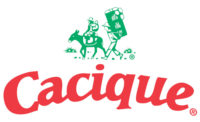
Obesity Lawsuit Bill Awaits Action
by Stephen Barlas
The food industry was unable to squeeze an obesity lawsuit bill through a very tightly scheduled Senate as Congress left town at the end of September to campaign for the November elections. However, there is a possibility that the bill (S. 908), the counterpart to legislation that already passed the House, could squeak through the Senate during the lame-duck session scheduled for November.
Sponsored by U.S. Sen. Mitch McConnell (R-Ky.), the
Commonsense Consumption Act was written in reaction to class-action
lawsuits filed against McDonald’s, Kraft and, in at least one
instance, an ice cream company, DeConna Ice Cream of Orange Park, Fla.,
which makes Big Daddy’s Diet Ice Cream. The Senate bill (and its
House counterpart, H.R. 554) bars civil actions against a manufacturer,
marketer, distributor, advertiser or seller of a qualified product, or a
trade association, for damages, penalties, declaratory judgment, injunctive
or declaratory relief, restitution or other relief arising out of, or
related to a person’s accumulated acts of consumption of a qualified
product and weight gain, obesity or a health condition that is associated
with a person’s weight gain or obesity.
While the lawsuits filed against McDonald’s and
the others have alleged mislabeling of products, not a connection to
consumer obesity, the threat of such lawsuits hangs heavy in the air. Trial
lawyers continue to circle around food companies. For example, two leaders
in the obesity lawsuit movement sent letters a few years back to
Baskin-Robbins Inc., Ben & Jerry’s Homemade Holdings Inc., Cold
Stone Creamery, the Häagen-Dazs Shoppes Inc., TCBY and Friendly Ice
Cream Corp. telling the chains to add healthier alternatives and put
nutritional facts on their store menu boards or face potential
litigation.
The Public Health Advocacy Institute (PHAI), a sort of
think tank for trial lawyers, holds annual conferences devoted to obesity
lawsuit possibilities. The 2007 conference on legal approaches to the obesity epidemic is called
“Targeting Kids: The Food Industry and Children’s Diets.” It will be held in Boston,
November 3 to 5.
These obesity conferences send shivers down the spines
of food executives, and strike a cord of excessiveness in the public mind,
explaining why the House passed its version of the McConnell bill (H.R.
554) by a vote of 306-120 on October 19, 2005. But McConnell had been
unable to get his bill out of the Senate Judiciary Committee. Robert
Steurer, spokesman for McConnell, says negotiations were ongoing and his
boss was hopeful that the Senate would pass the bill prior to the end of
the 2006 session.
In early September, a number of groups —
including the Center for Science in the Public Interest — sent
letters to every senator urging them to oppose McConnell’s S. 908.
Mike Shutley, a spokesman for the National Restaurant
Association, explains that the chief Democratic co-sponsor of the McConnell
bill is Sen. Harry Reid (D-Nev.), the minority leader in the Senate. The
bill has six Democratic co-sponsors. So as was the case in the House, the
bill has substantial bipartisan support in the Senate. Shutley says another
effort will be made to find a formula for fast floor consideration during
the lame-duck session.
Stephen Barlas has been a full-time freelance
Washington editor for business and trade magazines since 1981.
$OMN_arttitle="Obesity Lawsuit Bill Awaits Action";?>